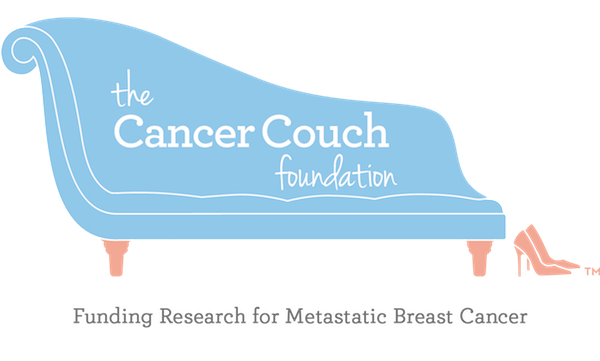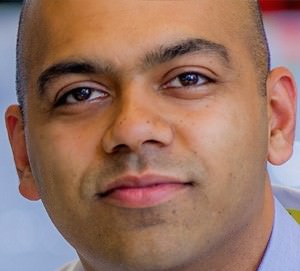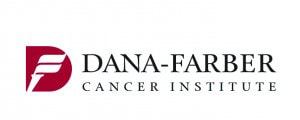On The Couch With…Dr. Nikhil Wagle
Dr. Nikhil Wagle is one cool cat…
That is the best way to describe him really. Yes, yes he is a brilliant, young oncologist who I believe is at the forefront of solving the mystery of metastatic breast cancer with his groundbreaking research in precision medicine and the mbc project. However, what really sold me on getting behind Dr. Nikhil and supporting his lab was so much more than that. First of all, when I put the query out in the trenches of the mbc community – in a variety of different social media outlets and private chatrooms – many of which only patients and advocates are privy to, his was the name that repeatedly came up as the HOPE of mbc patients. Nikhil walks the walk and talks the talk. He has made it a point to get to know the advocates and patients in the mbc community, to entrench himself in patients’ stories, and really listen to their concerns. His heart breaks as ours do every time we lose a member of this community, and it soars when someone does well. This is a pretty rare quality for a doctor who is primarily a researcher and spends more time in the lab than the clinic.
As if this wasn’t enough to convince me that he is someone I wanted to partner with in my quest to eradicate mbc, Nikhil absolutely blew me away when he wrote me an email early on in our relationship. In the email he quoted a blog I had written in which I referenced one of my favorite bands…Digable Planets. I was going through radiation at the time and was being asked for my musical preferences to play during treatment. Being that the techs were about 13 years-old, my options were fairly limited to their knowledge of the current music scene, and this somewhat “old school rap/funk” band was way too obscure for them to oblige my request. Nikhil, however, not only knew who they were – but actually played one of their best songs “Rebirth of Slick (cool like dat)” in a band he was in after Harvard undergrad and before Harvard Med – in LA. He is a music-loving, bass player who happens to be a genius researcher who is completely committed to and passionate about curing breast cancer. I’m in. Yup. That’s who we’re funding. He is as smart as he is cool, passionate, humble, dedicated and kind. It is my pleasure to introduce to you, one of The Cancer Couch Foundation’s star researchers, out of Dana-Farber Cancer Institute in Boston, MA, Dr. Nikhil Wagle:
Click to see a video of Dr. Wagle’s work with The Cancer Couch.
My interview with this diligent doc:
Stay tuned to get to know our other star researcher…Dr. Sarat Chandarlapaty of MSKCC coming soon!
That is the best way to describe him really. Yes, yes he is a brilliant, young oncologist who I believe is at the forefront of solving the mystery of metastatic breast cancer with his groundbreaking research in precision medicine and the mbc project. However, what really sold me on getting behind Dr. Nikhil and supporting his lab was so much more than that. First of all, when I put the query out in the trenches of the mbc community – in a variety of different social media outlets and private chatrooms – many of which only patients and advocates are privy to, his was the name that repeatedly came up as the HOPE of mbc patients. Nikhil walks the walk and talks the talk. He has made it a point to get to know the advocates and patients in the mbc community, to entrench himself in patients’ stories, and really listen to their concerns. His heart breaks as ours do every time we lose a member of this community, and it soars when someone does well. This is a pretty rare quality for a doctor who is primarily a researcher and spends more time in the lab than the clinic.
As if this wasn’t enough to convince me that he is someone I wanted to partner with in my quest to eradicate mbc, Nikhil absolutely blew me away when he wrote me an email early on in our relationship. In the email he quoted a blog I had written in which I referenced one of my favorite bands…Digable Planets. I was going through radiation at the time and was being asked for my musical preferences to play during treatment. Being that the techs were about 13 years-old, my options were fairly limited to their knowledge of the current music scene, and this somewhat “old school rap/funk” band was way too obscure for them to oblige my request. Nikhil, however, not only knew who they were – but actually played one of their best songs “Rebirth of Slick (cool like dat)” in a band he was in after Harvard undergrad and before Harvard Med – in LA. He is a music-loving, bass player who happens to be a genius researcher who is completely committed to and passionate about curing breast cancer. I’m in. Yup. That’s who we’re funding. He is as smart as he is cool, passionate, humble, dedicated and kind. It is my pleasure to introduce to you, one of The Cancer Couch Foundation’s star researchers, out of Dana-Farber Cancer Institute in Boston, MA, Dr. Nikhil Wagle:
Click to see a video of Dr. Wagle’s work with The Cancer Couch.
My interview with this diligent doc:
- Me: What was it that inspired you to dedicate your career to the study of mbc? Nikhil: It was really my experience as a medical resident and oncology fellow. Taking care of patients with mbc and knowing we hadn’t yet found a way to cure this disease led me to want to devote my research career to this. I worked with many breast cancer patients, but when someone had mbc – there was a whole different approach to working with them. It was incredibly frustrating to not be able to offer people treatments that would cure their cancer.
- Me: What do you find most gratifying about your work in the field of mbc? Nikhil: My team. They are unbelievably smart and hardworking – and we share the same goals for patients with mbc. Every single day we are trying to make a difference in the lives of people with cancer. The other aspect of this that has been so gratifying is my relationship with the patients who are involved in our research. In the last 2 years I have been introduced to this whole community of mbc patients and it has been unbelievable. Patients are partnering with us, which is both unexpected and incredibly inspiring. The third thing is the fact that when people in the mbc community see us working hard to make discoveries and find new treatments, this gives people hope – this is not just gratifying to see, but in turn gives us encouragement to work harder and faster.
- Me: What has been the most difficult/upsetting aspect of dedicating your career to mbc? Nikhil: The most difficult thing is that things move too slowly. You want to make a difference for every person you meet. However, even the most cutting-edge and recent findings may only help some people and not necessarily the person you are meeting with right now.
- Me: What do you most want people to know who are considering donating to The Cancer Couch to fund your research? Nikhil: I want them to know how pure this is. It is you saying “I want to make a difference” and all the money that comes in just goes straight to research. People should know this. It is a totally transparent organization – it just comes right in and goes right out. This is really important for people to know. It is a really focused cause.
- Me: What have you been able to do with the money we have given your lab so far? Nikhil: We are continuing the project of understanding the importance of Her2 mutations in mbc and how when we identify these mutations they might be relevant in resistance and to identify patients who will benefits from specific therapies. The immune project is the second project we will be able to fund thanks to The Cancer Couch, and we are weeks away from having our initial results that will come out of collecting and analyzing tumor tissues for immune markers.
- Me: What do you still hope to do? Nikhil: Our hope is that we can map out the patterns of mbc – the molecular and genomic aspects of breast cancer, come up with an MBC atlas, and be able to say to every patient – this is the plan for your cancer.
- Me: How close do you think we are to making mbc a chronic, manageable disease, and where do you think the future is in treatment for mbc (i.e., precision medicine, immunotherapy, etc.). Nikhil: It’s hard to put an exact timeline on it, but over the next decade we will continue to get better and better treatment. The strategies in precision medicine and looking at the combination of DNA, RNA, proteins, and the immune system – all of that together – as well as combinations of targeted therapies and immunotherapies done in a rational, sophisticated way – that’s where we will see progress.
Stay tuned to get to know our other star researcher…Dr. Sarat Chandarlapaty of MSKCC coming soon!




